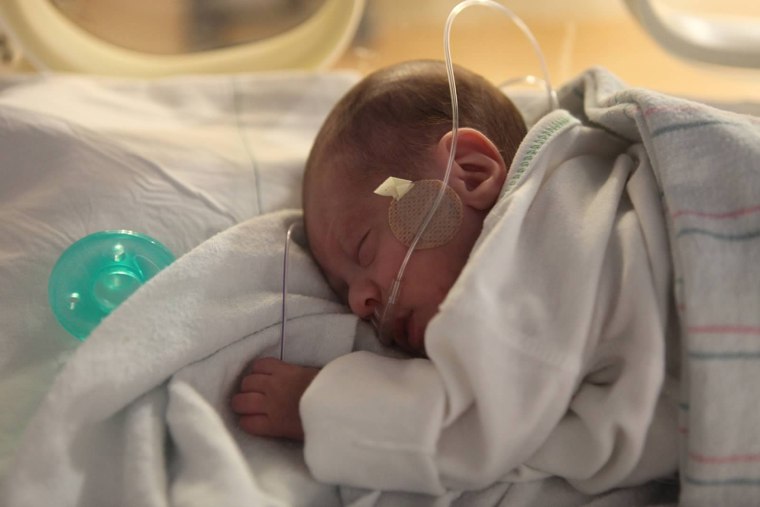Parents and other people who come to visit babies in the newborn intensive care unit are sometimes carrying a potentially deadly germ on their clothing, researchers report.
They found respiratory syncytial virus (RSV) on 4 percent of samples taken from the clothing of visitors to a neonatal intensive care unit (NICU), and, more startling, from 9 percent of frequently touched places such as babies’ bed rails, nurses’ computers and visitors’ chairs right next to cribs.
The hands of nurses, doctors and visitors were clean, but clean hands can pick up germs from clothing and objects and transfer them to the highly vulnerable babies.
RSV causes common cold symptoms and almost everyone gets it. But it sends 75,000 to 125,000 children to the hospital in the U.S. each year and kills as many as 200 of them.
"The aim of this study was to identify potential sources of transmission of RSV in the NICU to better inform infection control strategies," said Dr. Nusrat Homaira of the University of New South Wales in Australia, who presented the findings to the International Conference on Emerging and Infectious Diseases in Atlanta this week.
Some NICUs require visitors to wear gowns and this could be important, Homaira said in a statement. The hospital they tested did not require visitors to put on protective gowns.
"There is a need for further research to evaluate how long the virus remains infectious on personal clothing, which will have policy implications in terms of need for use of separate gowns by the visitors while they are in the NICU," she said.

